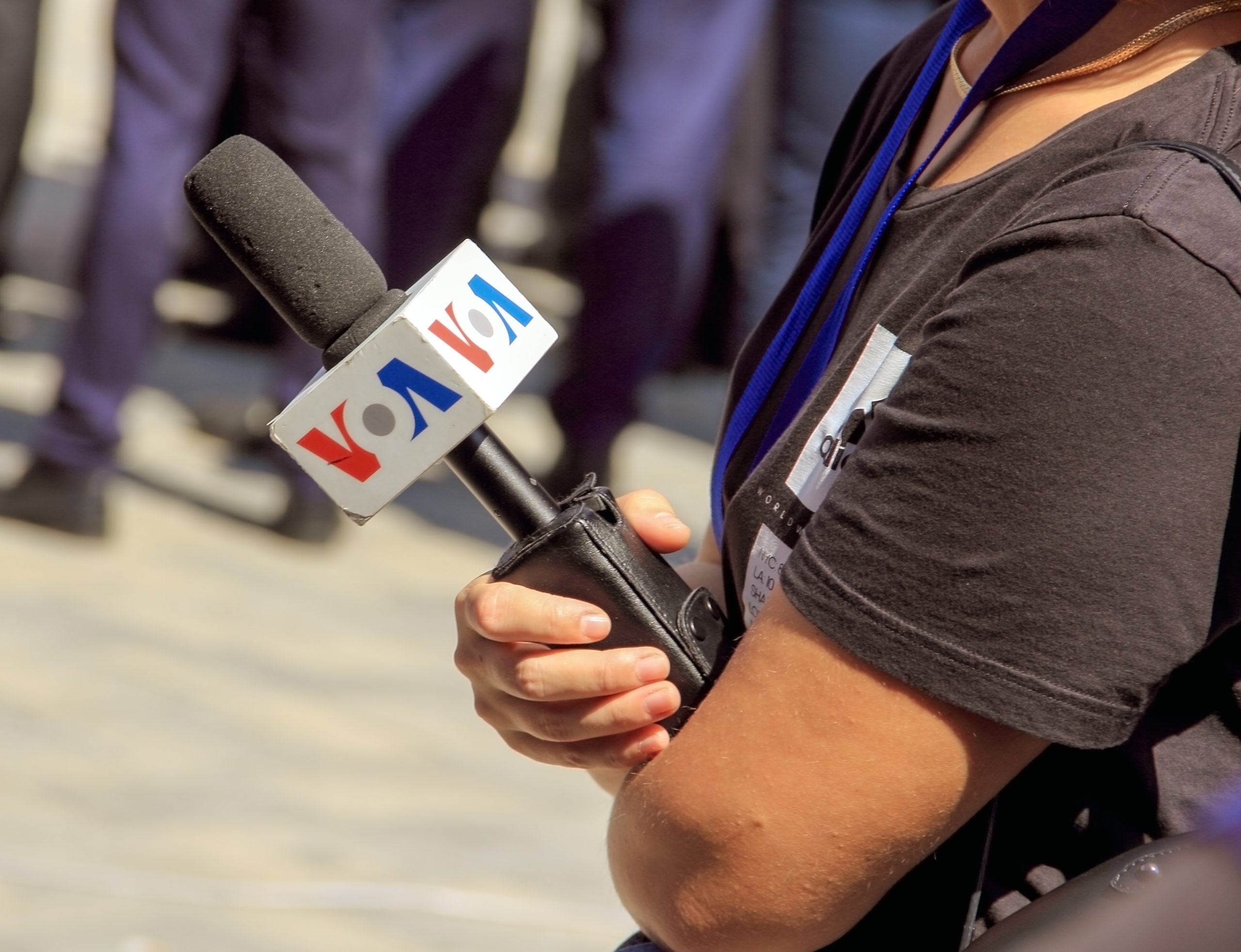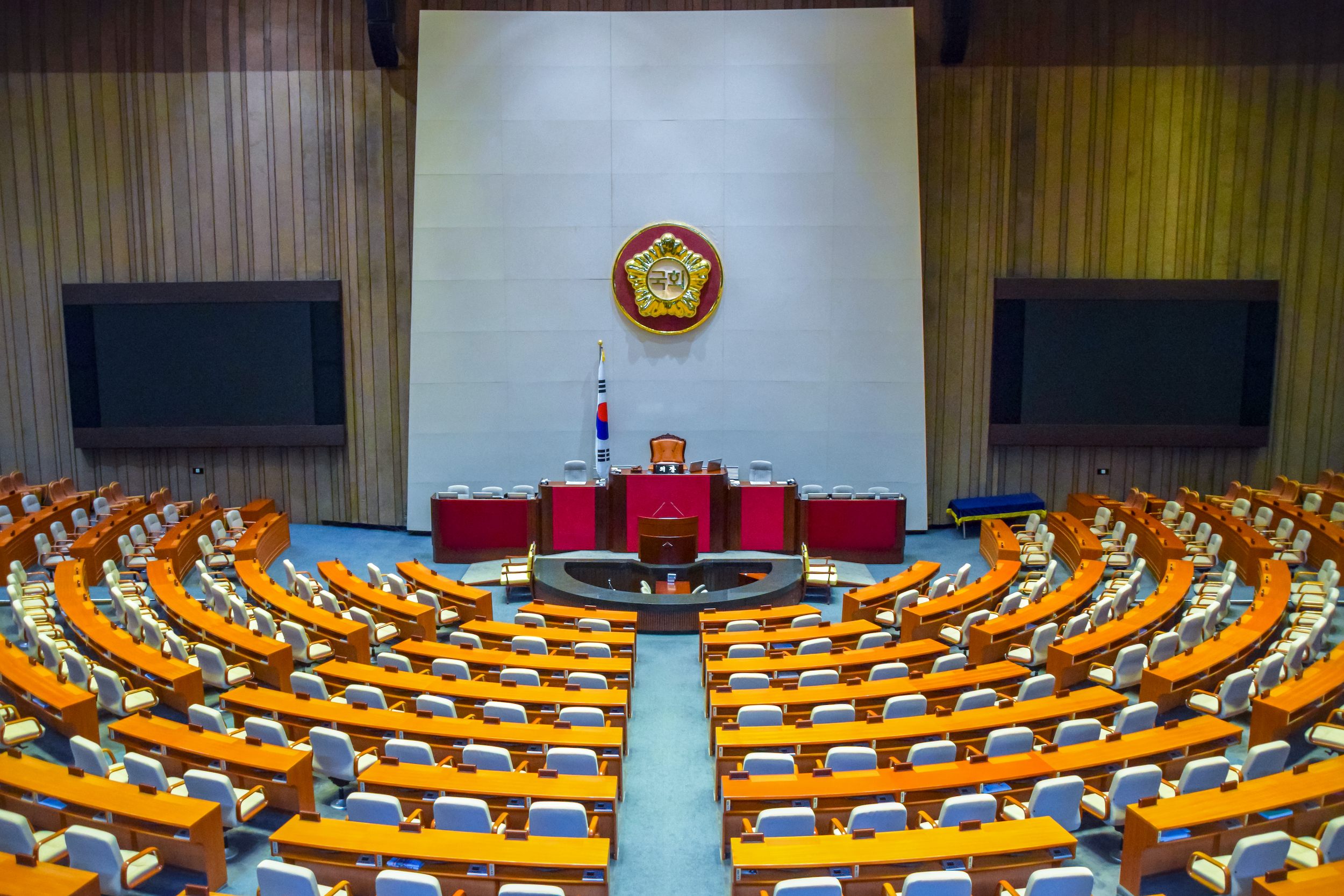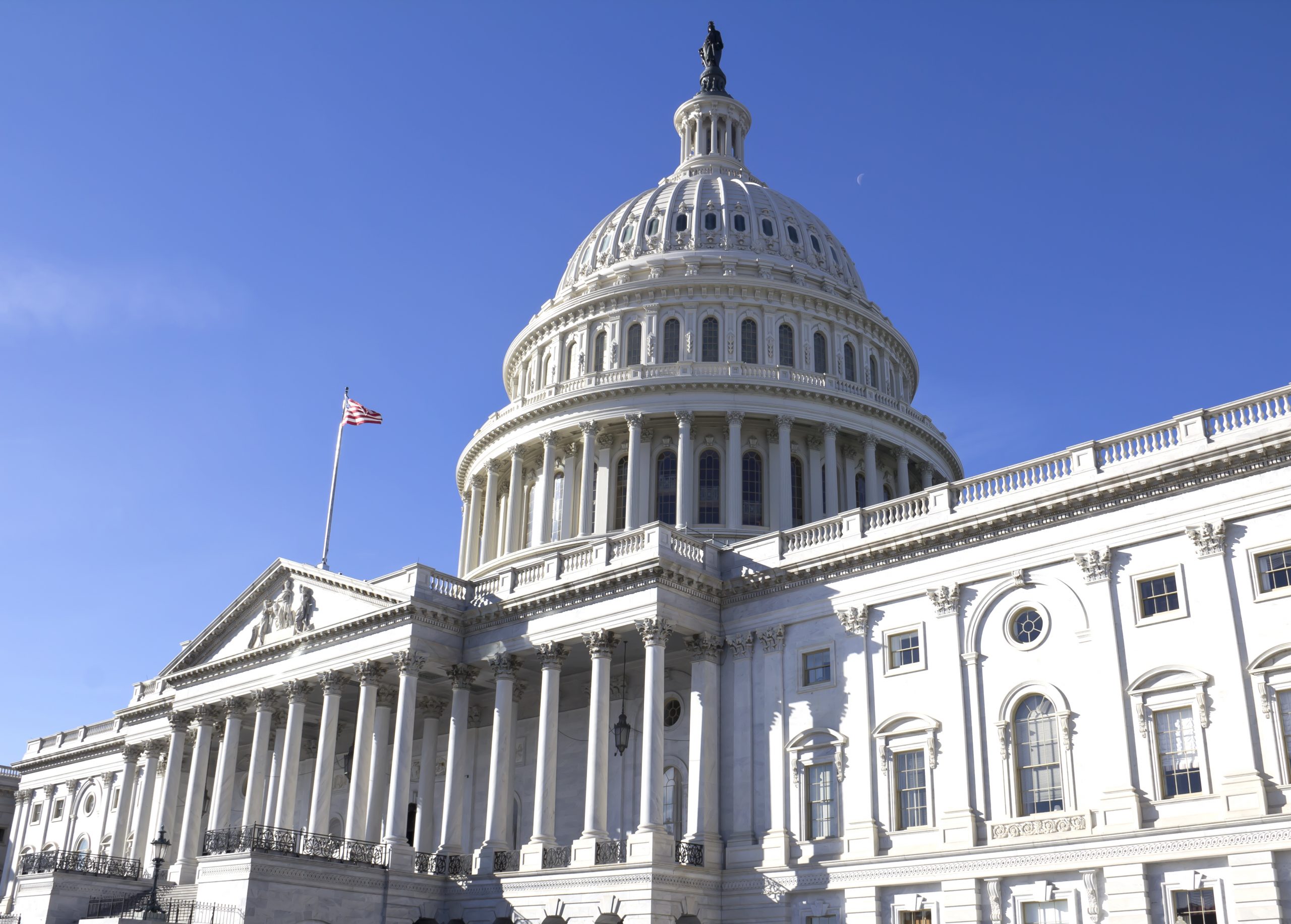The PMA Briefing
Confusion and complications for public media
8 October 2025
Confusion after an interim ruling stopped hundreds of VOA staff being laid off, but the US government shutdown means VOA services are paused; complications arise as reforms seek to reduce the Netherlands’ 11 public broadcasters into four or five broadcasting houses; and what next after South Korea replaces its regulator? Plus: trust at a new low in the US, and a journalist safety officer employed at every UK police force.
The Netherlands: Complications over public broadcasting reforms
The Dutch government’s plan to reduce the number of public broadcasters and encourage more synergy between broadcasters is running into some complications. The Dutch public broadcasting system is facing €15 million of budget cuts, and the government is also planning major reforms which would reduce the number of public broadcasters, and streamline their services into joint broadcasting houses. This would see the existing eleven separate outlets combined into four to five public media houses. The government has argued the current structure is too fragmented, with each public broadcaster maintaining its own press office and multiple directors performing similar roles. This concentration in broadcasting houses was thought to consolidate overlapping functions and operations, leaving room for innovation.
However the matter has not been straightforward. The numerous Dutch public media outlets, each with their own specific characteristics and different interests, has made it difficult to reach a consensus. According to NOS, while there is an intention to change the broadcasting system, some public broadcasters voiced concerns that this solution could give rise to a “lack of content alignment” and competition for funding within the same broadcasting house.
Several broadcasters have already announced they would intensify their collaborations from a joint broadcasting house.

US: Judge blocks job cuts at VOA
A federal judge has temporarily suspended the Trump administration’s executive order to eliminate over 500 full-time positions at Voice of America (VOA).
The interim ruling from US District Judge Royce Lamberth argued that job cuts to the VOA would undermine its legal mandate to provide “consistently reliable and authoritative” news. It means the employees must remain as VOA staff until the final ruling is handed down, after the USAGM’s acting CEO, Kari Lake, said all staff would be let go on 1 October. Lamberth also criticised the administration’s “concerning disrespect” towards earlier court orders that requested information on plans for VOA.
Additionally, since the US government shutdown, all news broadcasts from VOA and all journalists have been suspended. VOA had previously avoided such shutdowns, as they were previously considered critical for national security.
The March executive order that triggered the initial cuts led to the first halt in VOA broadcasting in 83 years, placing most full-time employees on administrative leave. The US Agency for Global Media itself, which houses multiple networks including Radio Free Europe/Radio Liberty, Radio Free Asia, and Middle East Broadcasting, used to reach over 400 million people worldwide.

South Korea: Regulator scrapped, concerns remain
South Korea’s communications regulator, the KCC, will be abolished and replaced by a new organisation, the government announced last week. The KCC had become increasingly political under the administration of Yoon Suk Yeol, who was impeached in April amid widespread protests, when his government refused to appoint members, leaving it paralysed and short of a quorum.
The new government has instead proposed a new organisation, known as BMTC, with a seven-member board, arguing that no political party should be able to seize control. But critics have said the move doesn’t address structural issues, and the legislation is vague on what safeguards are in place. The former chair of the KCC, Lee Jin-sook, who was arrested last week, has said the reorganisation was targeted at her. Lee was released shortly after her arrest.

Taiwan: Law enforcement called in after Rti hacked
Law enforcement officials have been called in, after the website of Taiwan’s international public media outlet, Radio Taiwan International (Rti), was hacked. In a statement, the broadcaster said on 7 September, hackers accessed the website and replaced the homepage banner. Over the following days, the broadcaster’s online platform was subject to repeated attacks.
Rti, which provides content in 20 different languages, said it had notified the Taipei Police Department and the Investigation Bureau of the Ministry of Justice, and had requested both technical assistance and an investigation.
The identity of the hackers is not known. However, the island nation has consistently faced cyberattack and disinformation campaigns in the past.

UK: Journalist safety officers for all UK police
The UK government has announced a new scheme which will see a Journalist Safety Liaison Officer hired for all 43 police forces. “Too often, journalists are put in harm’s way while fulfilling their vital role of delivering accurate news to the public,” said Media Minister Ian Murray. “It is only right that they feel supported and protected.” The initiative is part of the UK’s National Action Plan for the Safety of Journalists, unveiled in 2023 by the previous government.
Press freedom and civil society groups welcomed the move. The National Union of Journalists said it was “important progress” and that “ensuring designated contacts to approach serves as a crucial milestone in providing practical, vital support to journalists when needed most.”
While the UK ranks 20th in the world in RSF’s Press Freedom Index, there have been notable incidents recently affecting journalists. A UK-based Iranian journalist was stabbed in March 2024; a report from Amnesty International showed journalists in Northern Ireland were working under a “climate of fear” amidst threats from paramilitary organisations; and there was violence against journalists in the August 2024 riots.

US: Trust in media plummets further
A study has found that ethnic and Indigenous newsrooms in the United States were proving especially useful in stopping the spread of mis- and disinformation, because of their high levels of trust with communities.
“Thanks to their deep community ties and well-established credibility, ethnic and Indigenous newsrooms are often attuned to harmful rumors and falsehoods circulating within their communities well before those narratives manage to garner national attention,” the research by the International Centre for Journalists concluded.
The ICFJ report was a welcome glimmer amid plummeting trust of the media overall. This year’s Gallup survey, published this week, found Americans’ trust in the media has collapsed to a new low, with just 28 percent of people surveyed saying they have a “great deal” or “fair amount” of trust in newspapers, television and radio to report the news fully, accurately and fairly. That figure is down from 40 percent just five years ago.
“With confidence fractured along partisan and generational lines, the challenge for news organisations is not only to deliver fair and accurate reporting but also to regain credibility across an increasingly polarized and skeptical public,” Gallup wrote.

Related Posts
30th September 2025
Big decisions ahead for public media | The PMA Briefing
EBU members vote on Israel's Eurovision…
24th September 2025
Public media, working together? | The PMA Briefing
French public media unite against…
9th September 2025
New governance structures and electoral concerns | The PMA Briefing
The outcomes of upcoming elections…
2nd September 2025
What future for public media? | PMA Briefing
Germany and Thailand discuss the future…



